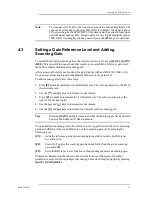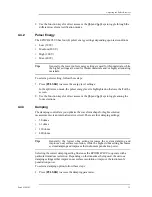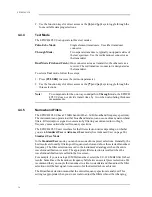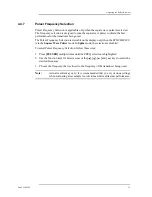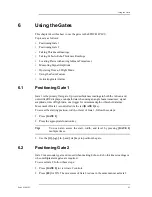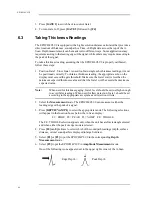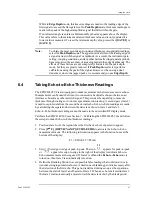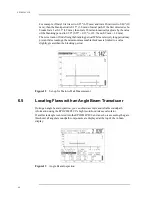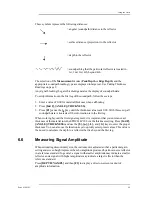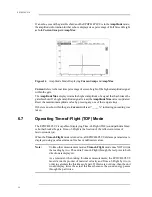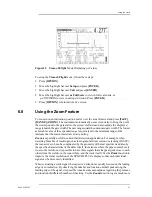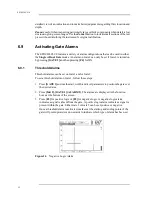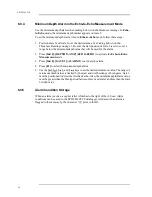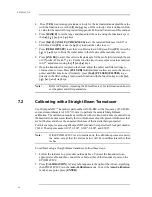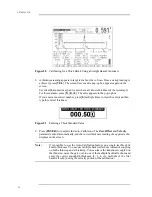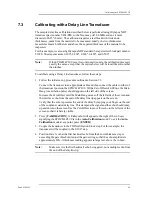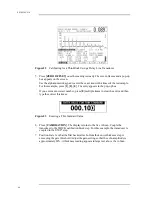
46
EPOCH 4PLUS
3. Press [GATE 1] to switch back to control Gate 1.
4. To turn Gate 2 off, press [GATE 2] followed by [F4].
6.3
Taking Thickness Readings
The EPOCH 4PLUS is equipped with a high resolution distance calculator that provides a
direct readout of thickness, soundpath, or Time-of-Flight data across the top of the A-
Scan. Depth measurements can be made in two different ways. Some applications may
require measuring to the leading edge of the signal, while others may require measuring to
the peak of the signal.
To take a thickness reading, assuming that the EPOCH 4PLUS is properly calibrated,
follow these steps:
1. Position Gate 1. Since Gate 1 is used to obtain single echo thickness readings, it must
be positioned correctly. To obtain a thickness reading, the appropriate echo on the
display must exceed the gate threshold. Make sure the Gate 1 start is less than the
minimum expected thickness value and that the Gate 1 width exceeds the maximum
expected value.
Note:
When used for thickness gaging, Gate 1 level should be set just high enough
to avoid false readings. When used for flaw detection, Gate 1 should be set
according to the appropriate acceptance and rejection criteria.
2. Select the Measurement mode. The EPOCH 4PLUS can measure to either the
leading edge or the peak of a signal.
3. Press [DEPTH/%AMPL] to select the appropriate mode. The following selections
will appear in the function boxes below the A-Scan display:
F1 = EDGE F2 = PEAK F3 =%AMP F4 = TOGGLE
The F4 = TOGGLE selection appears only when the unit has a refracted angle entered
and when either the peak or edge mode is selected.
4. Press [F4] multiple times to select which of the soundpath readings (depth, surface
distance, or total soundpath) is displayed in large bold text.
5. Select [F1] or [F2] to put the EPOCH 4PLUS in the corresponding Depth
Measurement mode.
6. Select [F3] to put the EPOCH 4PLUS in Amplitude Measurement mode.
One of the following icons appears next to the upper right corner of the A-Scan.
Edge Depth =
Peak Depth
Summary of Contents for Panametrics Epoch 4 Plus
Page 4: ...EPOCH 4PLUS...
Page 10: ...EPOCH 4Plus...
Page 18: ...8 EPOCH 4PLUS...
Page 40: ...30 EPOCH 4PLUS...
Page 50: ...40 EPOCH 4PLUS...
Page 54: ...44 EPOCH 4PLUS...
Page 92: ...82 EPOCH 4PLUS...
Page 172: ...162 EPOCH 4PLUS...


